Leveraging Jeff Bezos' "Regret Minimization Framework" for Digital Transformation in the Age of Big Data
Last updated: July 23, 2025 Read in fullscreen view
- 05 Oct 2025
 The New Facebook Algorithm: A Paradigm Shift in Content Discovery 66/109
The New Facebook Algorithm: A Paradigm Shift in Content Discovery 66/109 - 01 May 2023
 Understanding Business as Usual (BAU) and How to Transition 52/930
Understanding Business as Usual (BAU) and How to Transition 52/930 - 13 Oct 2021
 Outsourcing Software Development: MVP, Proof of Concept (POC) and Prototyping. Which is better? 40/486
Outsourcing Software Development: MVP, Proof of Concept (POC) and Prototyping. Which is better? 40/486 - 03 Oct 2025
 Top CMS Trends 2026: The Future of Digital Content Management 38/56
Top CMS Trends 2026: The Future of Digital Content Management 38/56 - 20 Dec 2025
 The Future of IT Consulting: Key Trends for 2026–2030 35/67
The Future of IT Consulting: Key Trends for 2026–2030 35/67 - 03 Dec 2025
 Templafy Features Explained: The Ultimate Guide to Streamlined Content Management 33/59
Templafy Features Explained: The Ultimate Guide to Streamlined Content Management 33/59 - 12 Oct 2022
 14 Common Reasons Software Projects Fail (And How To Avoid Them) 32/568
14 Common Reasons Software Projects Fail (And How To Avoid Them) 32/568 - 03 Nov 2023
 Why Is Billable Viable Product An Alternative To Minimum Viable Product? 31/200
Why Is Billable Viable Product An Alternative To Minimum Viable Product? 31/200 - 19 Oct 2021
 Software development life cycles 29/701
Software development life cycles 29/701 - 29 Nov 2021
 Memorandum of Understanding (MOU) for Partnership Agreements 28/544
Memorandum of Understanding (MOU) for Partnership Agreements 28/544 - 10 Sep 2024
 Leading Remote Teams in Hybrid Work Environments 27/160
Leading Remote Teams in Hybrid Work Environments 27/160 - 21 Sep 2023
 Abraham Wald and the Missing Bullet Holes 23/667
Abraham Wald and the Missing Bullet Holes 23/667 - 11 Oct 2022
 Why choose Billable Viable Product (BVP) over Minimum Viable Product (MVP) 22/361
Why choose Billable Viable Product (BVP) over Minimum Viable Product (MVP) 22/361 - 31 Dec 2025
 10 Skills to Make You "Irreplaceable" in the Next 3 Years (even if AI changes everything) 22/34
10 Skills to Make You "Irreplaceable" in the Next 3 Years (even if AI changes everything) 22/34 - 23 Jun 2025
 AI Avatars in the Metaverse: How Digital Beings Are Redefining Identity and Social Interaction 18/125
AI Avatars in the Metaverse: How Digital Beings Are Redefining Identity and Social Interaction 18/125 - 21 Dec 2023
 Top 12 Low-Code Platforms To Use in 2024 18/1248
Top 12 Low-Code Platforms To Use in 2024 18/1248 - 18 Aug 2024
 The Future of Web Development: Emerging Trends and Technologies Every Developer Should Know 17/201
The Future of Web Development: Emerging Trends and Technologies Every Developer Should Know 17/201 - 05 Sep 2023
 The Cold Start Problem: How to Start and Scale Network Effects 17/203
The Cold Start Problem: How to Start and Scale Network Effects 17/203 - 04 Oct 2021
 Product Validation: The Key to Developing the Best Product Possible 17/320
Product Validation: The Key to Developing the Best Product Possible 17/320 - 07 Oct 2025
 Case Study: Using the “Messaging House” Framework to Build a Digital Transformation Roadmap 17/86
Case Study: Using the “Messaging House” Framework to Build a Digital Transformation Roadmap 17/86 - 22 Nov 2024
 The Role of AI in Enhancing Business Efficiency and Decision-Making 17/196
The Role of AI in Enhancing Business Efficiency and Decision-Making 17/196 - 20 Feb 2025
 How Machine Learning is Shaping the Future of Digital Advertising 16/123
How Machine Learning is Shaping the Future of Digital Advertising 16/123 - 28 Oct 2025
 The Future of Real Estate: Key Trends and Essential Lessons in Digital Transformation 16/60
The Future of Real Estate: Key Trends and Essential Lessons in Digital Transformation 16/60 - 05 Mar 2021
 How do you minimize risks when you outsource software development? 16/336
How do you minimize risks when you outsource software development? 16/336 - 31 Aug 2022
 What are the best practices for software contract negotiations? 16/260
What are the best practices for software contract negotiations? 16/260 - 18 Jul 2024
 The 8 Best ways to Innovate your SAAS Business Model in 2024 15/257
The 8 Best ways to Innovate your SAAS Business Model in 2024 15/257 - 27 Jul 2024
 Positive Psychology in the Digital Age: Future Directions and Technologies 15/408
Positive Psychology in the Digital Age: Future Directions and Technologies 15/408 - 31 Dec 2022
 The New Normal for Software Development 15/364
The New Normal for Software Development 15/364 - 02 Dec 2024
 The Intersection of AI and Business Analytics: Key Concepts to Master in Your Business Analytics Course 15/295
The Intersection of AI and Business Analytics: Key Concepts to Master in Your Business Analytics Course 15/295 - 26 Sep 2024
 Successful Project Management Techniques You Need to Look Out For 14/401
Successful Project Management Techniques You Need to Look Out For 14/401 - 20 Dec 2021
 What is Hybrid Mobile App Development? 14/378
What is Hybrid Mobile App Development? 14/378 - 28 Jul 2022
 POC, Prototypes, Pilots and MVP: What Are the Differences? 13/697
POC, Prototypes, Pilots and MVP: What Are the Differences? 13/697 - 31 Dec 2023
 Software Development Outsourcing Trends to Watch Out for in 2024 13/233
Software Development Outsourcing Trends to Watch Out for in 2024 13/233 - 28 Oct 2022
 Build Operate Transfer (B.O.T) Model in Software Outsourcing 12/406
Build Operate Transfer (B.O.T) Model in Software Outsourcing 12/406 - 17 Jun 2021
 What is IT-business alignment? 12/374
What is IT-business alignment? 12/374 - 07 Nov 2022
 Why Design Thinking can save the outsourcing industry 12/194
Why Design Thinking can save the outsourcing industry 12/194 - 25 Jan 2025
 The Decline of Traditional SaaS and the Rise of AI-first Applications 12/109
The Decline of Traditional SaaS and the Rise of AI-first Applications 12/109 - 09 Oct 2024
 Short-Form Video Advertising: The Secret to Captivating Your Audience 12/134
Short-Form Video Advertising: The Secret to Captivating Your Audience 12/134 - 22 May 2025
 Role of Self-Service in CRM: Customer & Partner Portals for Automation 12/90
Role of Self-Service in CRM: Customer & Partner Portals for Automation 12/90 - 20 Aug 2025
 What Is Agentic AI? The Next Phase of Artificial Intelligence 12/149
What Is Agentic AI? The Next Phase of Artificial Intelligence 12/149 - 10 Sep 2024
 AI in Email Marketing: Personalization and Automation 11/183
AI in Email Marketing: Personalization and Automation 11/183 - 04 Oct 2022
 Which ERP implementation strategy is right for your business? 11/313
Which ERP implementation strategy is right for your business? 11/313 - 03 Jan 2024
 Why Partnership is important for Growth? 10/159
Why Partnership is important for Growth? 10/159 - 03 May 2024
 The Iceberg of Ignorance 10/403
The Iceberg of Ignorance 10/403 - 16 Sep 2022
 Examples Of Augmented Intelligence In Today’s Workplaces Shaping the Business as Usual 10/436
Examples Of Augmented Intelligence In Today’s Workplaces Shaping the Business as Usual 10/436 - 12 Dec 2021
 Zero Sum Games Agile vs. Waterfall Project Management Methods 10/409
Zero Sum Games Agile vs. Waterfall Project Management Methods 10/409 - 18 Jul 2021
 How To Ramp Up An Offshore Software Development Team Quickly 9/593
How To Ramp Up An Offshore Software Development Team Quickly 9/593 - 19 Dec 2023
 How AI is Transforming Software Development? 9/294
How AI is Transforming Software Development? 9/294 - 09 Sep 2024
 How AI Rewriting Can Improve Your Content’s SEO Performance 9/188
How AI Rewriting Can Improve Your Content’s SEO Performance 9/188 - 05 Oct 2021
 Shiny Object Syndrome: Why Your Business Isn't "Going Digital" 8/351
Shiny Object Syndrome: Why Your Business Isn't "Going Digital" 8/351 - 06 Dec 2024
 Steps For Integrating Sustainable Practices Into Business Operations 8/142
Steps For Integrating Sustainable Practices Into Business Operations 8/142 - 16 Aug 2022
 What is a Headless CMS? 8/272
What is a Headless CMS? 8/272 - 06 Mar 2024
 [SemRush] What Are LSI Keywords & Why They Don‘t Matter 7/176
[SemRush] What Are LSI Keywords & Why They Don‘t Matter 7/176 - 25 Sep 2024
 Enhancing Decision-Making Skills with an MBA: Data-Driven Approaches for Business Growth 7/202
Enhancing Decision-Making Skills with an MBA: Data-Driven Approaches for Business Growth 7/202 - 30 Jul 2024
 The Future of IT Consulting: Trends and Opportunities 6/190
The Future of IT Consulting: Trends and Opportunities 6/190 - 12 Aug 2024
 Understanding Google Analytics in Mumbai: A Beginner's Guide 6/99
Understanding Google Analytics in Mumbai: A Beginner's Guide 6/99 - 18 Jan 2024
 Self-healing code is the future of software development 6/214
Self-healing code is the future of software development 6/214 - 01 Dec 2023
 Laws of Project Management 5/302
Laws of Project Management 5/302 - 31 Dec 2022
 Future of Software Development Trends and Predictions 5/143
Future of Software Development Trends and Predictions 5/143 - 27 Feb 2025
 How AI Agents are Changing Software Development? 4/186
How AI Agents are Changing Software Development? 4/186 - 15 Aug 2025
 Quantum Technology: Global Challenges and Opportunities for Innovators 4/100
Quantum Technology: Global Challenges and Opportunities for Innovators 4/100 - 01 May 2024
 Warren Buffett’s Golden Rule for Digital Transformation: Avoiding Tech Overload 3/205
Warren Buffett’s Golden Rule for Digital Transformation: Avoiding Tech Overload 3/205 - 12 Sep 2024
 Be Water, My Friend: Fluidity, Flow & Going With the Flow 3/169
Be Water, My Friend: Fluidity, Flow & Going With the Flow 3/169
In today's fast-paced business environment, organizations are presented with unprecedented opportunities to harness vast amounts of data. The digital transformation journey is no longer a choice but a necessity. Amidst this technological revolution, companies face a critical question: How can they make strategic decisions that future-proof their success while minimizing the risk of regret?
One framework that can provide valuable insight in answering this question is Jeff Bezos’ "Regret Minimization Framework," which he famously used when deciding to launch Amazon in the 1990s. This approach can be highly effective for businesses navigating the complexities of digital transformation in an age of limitless information.
The Regret Minimization Framework Explained
The essence of Bezos' framework is simple but powerful. It is based on a mental model where individuals are encouraged to make decisions by imagining themselves at the end of their lives, looking back at the choices they made. Bezos reflected on this idea when he was contemplating whether to leave his stable job in investment banking and start an online bookstore. He realized that if he didn't act on the opportunity to build Amazon, he would regret it more in the long run than if he tried and failed.
This thought process led Bezos to focus on long-term value rather than short-term risks. The idea was to minimize future regret by making bold, forward-thinking decisions that are in line with one’s long-term goals.
Applying the Framework to Digital Transformation
In the context of digital transformation, the Regret Minimization Framework can be applied as a strategic guide for companies navigating the data-driven future. Here’s how:
1. Embrace the Digital Revolution Early
In the era of big data, organizations have the opportunity to harness information in ways that were previously unimaginable. From customer insights to predictive analytics, companies are sitting on a "goldmine" of data that can drive innovation, improve efficiencies, and unlock new revenue streams. Using the regret minimization lens, business leaders should ask themselves, "Will we regret not embracing digital transformation and data analytics now, while the technology and tools are available?"
The longer an organization waits to adopt digital technologies, the more difficult and costly it will become to catch up. The companies that invest in data analytics, automation, cloud computing, and AI today will be well-positioned to lead in the future. Those that delay may find themselves on the wrong side of history, unable to compete in an increasingly digital world.
2. Invest in Data Infrastructure and Talent
In a digital economy, data is the new oil, and businesses need the right infrastructure to extract value from it. By prioritizing investments in cloud-based platforms, data warehouses, and AI systems, businesses can gain the agility needed to scale rapidly and innovate. Using the Regret Minimization Framework, executives can ask themselves, "Will we regret not investing in data infrastructure and skilled personnel, as the demand for data-driven decisions grows?"
Building a robust data architecture today is an investment in future-proofing the business. Moreover, cultivating a workforce skilled in data analytics and AI is crucial for unlocking the full potential of this vast resource. As data becomes central to every aspect of business, companies must prepare their teams to use it effectively.
3. Adapt and Evolve with Customer Needs
Bezos often speaks about Amazon's relentless focus on customer satisfaction, which has been a driving force behind the company's digital innovations. The Regret Minimization Framework also applies to this aspect of digital transformation. Business leaders should reflect on how customer needs will evolve in the coming years and consider how they can meet those needs through digital tools, personalized experiences, and advanced data-driven services.
As more consumers move online and demand seamless digital experiences, companies must adapt to provide convenience, speed, and relevance. Will they regret not leveraging data to anticipate customer behavior and personalize their offerings?
4. Experiment, Fail Fast, and Learn
Digital transformation requires a culture of experimentation and innovation. Bezos, who often advocates for a "bias for action," believes that companies must be willing to try new things, fail quickly, and learn from those failures to pivot rapidly. In the context of big data, this could mean testing new data models, machine learning algorithms, or customer engagement strategies. Leaders should ask themselves, "Will we regret not experimenting with new digital technologies and strategies, even if we don’t get it right the first time?"
The ability to experiment, learn, and adapt is critical in a world where new opportunities are emerging rapidly. Companies that hesitate or become paralyzed by fear of failure are likely to miss out on valuable chances for growth.
A Bold Future
The future is digital, and the opportunities for businesses are vast. Companies that embrace transformation today will be better equipped to navigate the challenges of tomorrow. By applying Jeff Bezos’ Regret Minimization Framework, executives can make strategic decisions that prioritize long-term growth and minimize the regret of missed opportunities.
In the age of big data, the regret of not acting quickly enough can be far greater than the regret of taking risks and experimenting. By making bold decisions, investing in data-driven capabilities, and staying customer-focused, businesses can minimize their future regret and unlock the full potential of the digital era.
In the end, it’s not just about avoiding failure—it's about having the courage to make the bold decisions that will ensure your company’s place in the future of business.





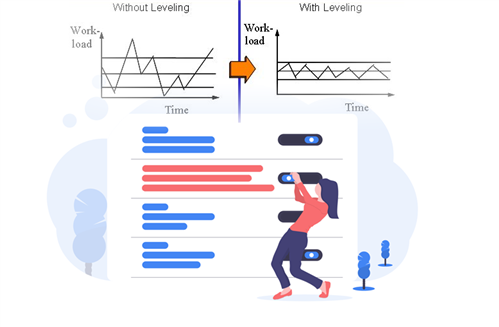
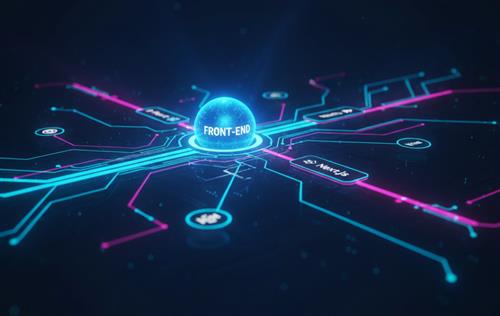

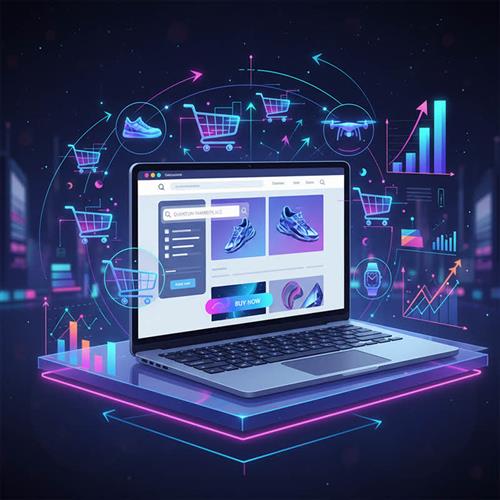
26072024043639_thumb.jpg)
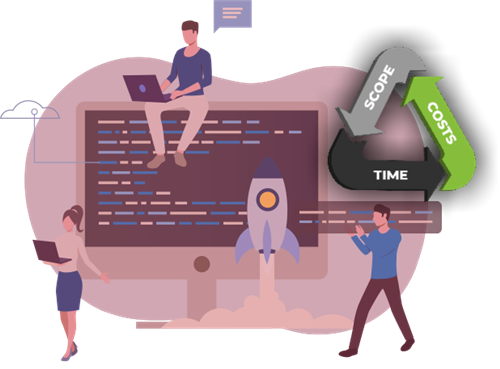
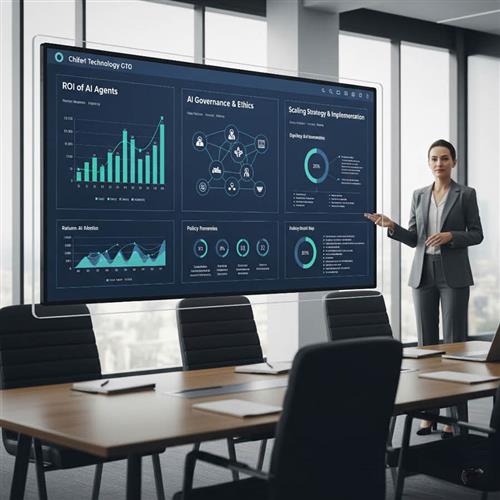
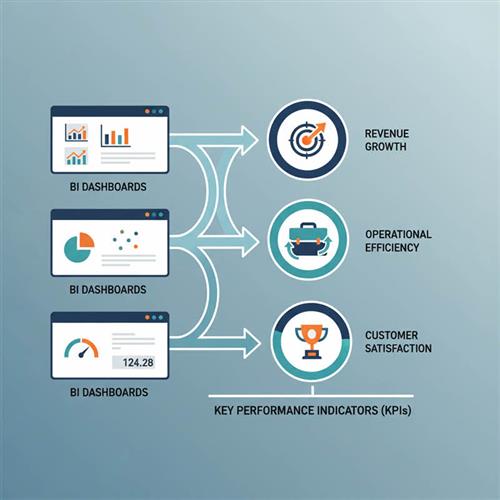
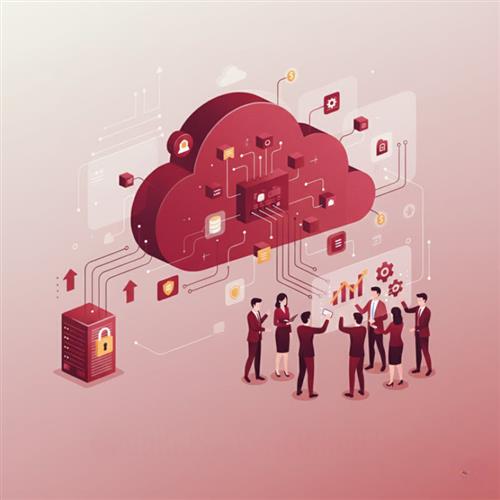
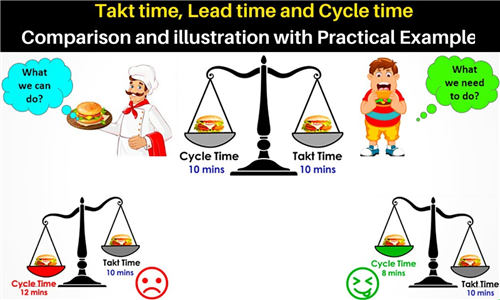


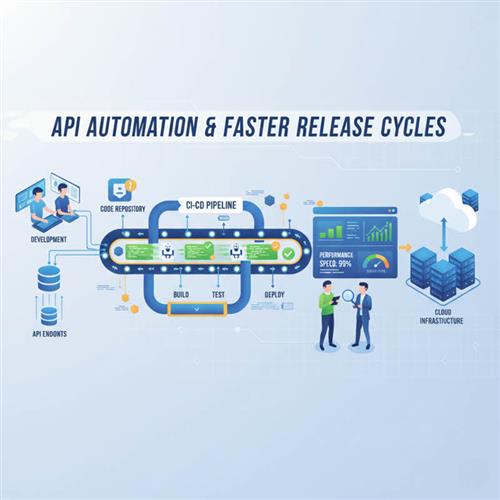


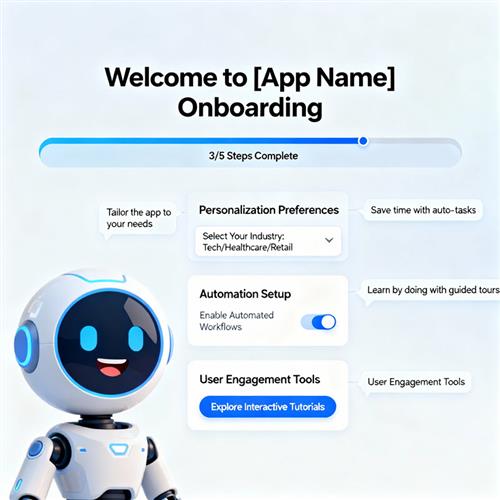
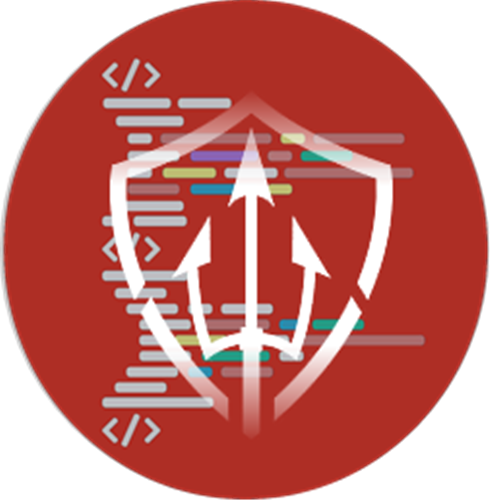
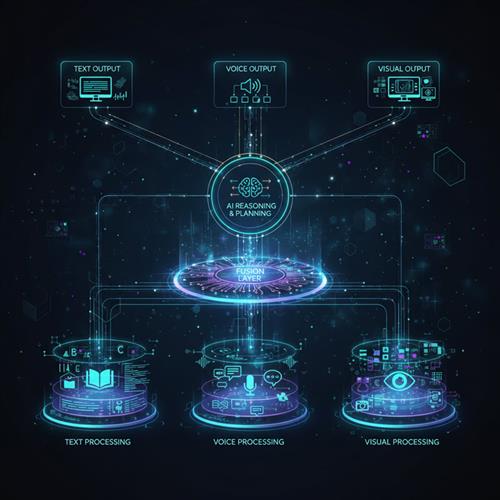

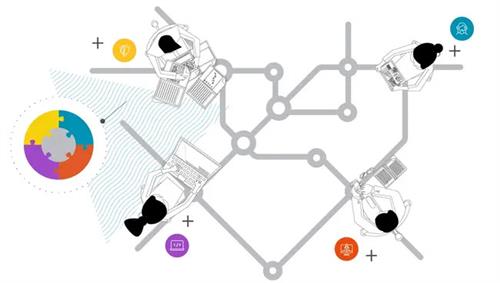








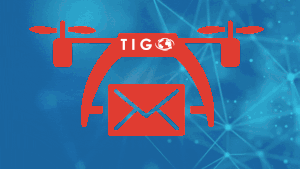
 Link copied!
Link copied!
 Recently Updated News
Recently Updated News